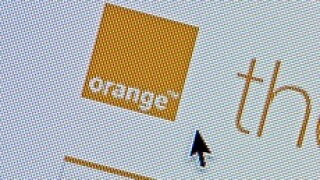Morgan Stanley
-
The dual currency $303m-equivalent loan, which marks Africa Export-Import Bank's (Afreximbank) second entry into the market, is the largest ever Samurai loan raised by an African issuer.
-
The UK Debt Management Office on Friday announced the syndicate that will run its forthcoming tap of the 2054 Gilt, as well as its plans for a further Gilt syndication to be held during the third quarter of 2019.
-
Rare international bond issuer Export-Import Bank of India turned to Japan this week for a yen-denominated deal. The ¥32bn ($301.2m) trade was its first standalone Samurai bond since 2006.
-
The hail of issuance in European corporate bonds continued at full pelt on Wednesday as Orange and National Grid joined the fray with multi-tranche deals. Investors and issuers seem equally eager to do business.
-
A private debt banker for Lloyds Securities in New York has left the bank, with one source suggesting he will start covering US private placements (US PP) for another arranger.
-
Europe's corporate bond market opened emphatically for business on Tuesday, as seven issuers banished all memories of the summer holiday. Despite there being plenty of choice for investors, demand was high across the board. Multiple deals were two to three times oversubscribed, while the largest, a €3.5bn four trancher from Siemens, the machinery maker, was nearly 4.5 times covered.
-
The dollar SSA market has started the short week on the front foot, with a trio of trades hitting screens on Tuesday.
-
KBC only needed to offer a slim new issue premium to attract €2bn of demand for a new tier two bond this week. The deal pricing was squeezed by 20bp from initial price thoughts, resembling senior deals from other issuers.
-
-
Emerging market consumer lender Home Credit will list on Hong Kong’s stock exchange in early October, despite political unrest-driven volatility that has scared off other issuers, according to a source close to the deal. Jonathan Breen reports.
-
The World Bank was one of a bevy of SSA dollar issuers raising a total of $8.4bn this week, with most of the trades indicating that investors coming back from the summer were having to decipher a completely different market to the one they left.
-
One Housing, a UK housing association focused on London and southeast England, has sold £150m of secured and unsecured US private placement notes to institutional investors.










